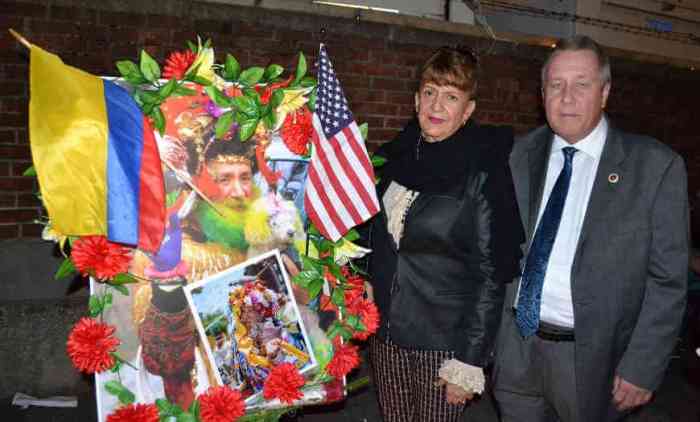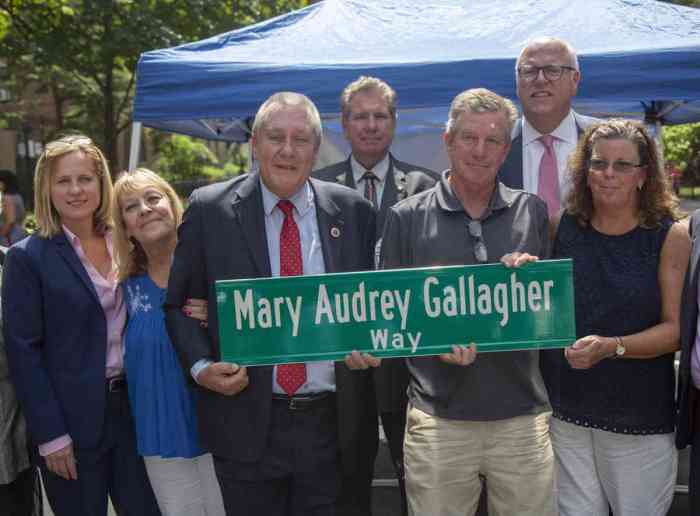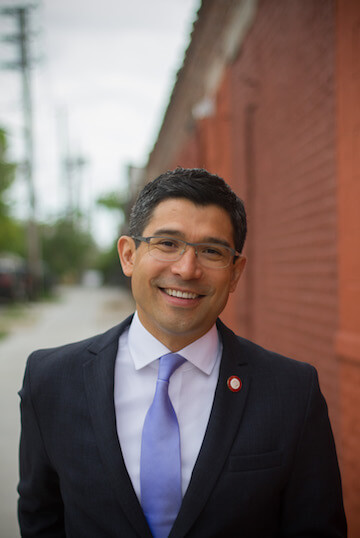One of the defendants in the 2006 killing of Michael Sandy (above), a gay man, argued that his status as a gay or bisexual man meant he should not be charged with a hate crime.
BY DUNCAN OSBORNE | A member of the State Assembly has introduced legislation that would allow judges to bar criminal defendants from claiming they belong to one of the protected classes in New York’s hate crime law when they are being prosecuted for a crime against a member of that protected class.
The legislation is named for Michael Sandy, an African-American gay man who was killed in 2006 when a group of four white Brooklyn men hatched a plan to lure him to a supposed sexual encounter and rob him. During the robbery, two of the men pursued the 29-year-old Sandy onto the Belt Parkway, where he was struck and killed by a car.
“It’s to protect people who are being targeted,” said Francisco Moya, the Democrat who sponsored the legislation and represents part of Queens, including Jackson Heights, in the Assembly. “These individuals decided to say that they were gay as well in order to not be charged with a hate crime.”
“Michael Sandy Act” would bar defendants from arguing they too are in targeted class
At trial, John Fox, now 30, and Anthony Fortunato, now 31, faced murder, manslaughter, attempted robbery, and assault counts with some charged as hate crimes. Fortunato was the mastermind behind the robbery plan. Ilya Shurov, now 31, faced the same charges, but was supposed to have a separate trial. He pleaded guilty after Fox and Fortunato, who were tried together, but with separate juries, were convicted. The fourth man, Gary Timmins, now 26, cooperated with the prosecution.
Defense attorneys for Fortunato, Fox, and Shurov battled to have the hate crime tags dismissed, saying the Brooklyn district attorney’s office was misusing the state hate crime law. Defense attorneys see the hate crime tag as prejudicial and tending to inflame jurors’ sentiments.
They were unsuccessful in getting the hate crime elements dismissed. Fortunato’s attorney subpoenaed three men who testified that they had had sex with him. Two of the three said Fortunato showed up wearing women’s underwear. Fortunato testified and told jurors that he “could be homosexual or bisexual right now.”
While Fortunato, who was released from prison in 2015, was convicted on manslaughter as a hate crime, he avoided a conviction for attempted robbery or assault, testifying that when Shurov and Fox pursued Sandy onto the Belt Parkway, he left the scene. Unlike attempted robbery, manslaughter is not a violent crime under New York law and Fortunato benefited from that. He was sentenced to seven-to-21 years. The absence of a violent felony conviction likely made his parole easier and his first parole hearing came earlier. One Fortunato juror said his jury was moved by his testimony.
“By the letter of the law, Fortunato was guilty, but no one felt he had any hatred or animosity towards homosexuals,” the juror told Gay City News following the trial. “It was incredibly hard, and I know that other jurors felt a lot of sympathy for Anthony Fortunato. Nobody thought he was a bad kid.”
New York’s hate crime law says that a defendant commits such a crime when he or she intentionally selects a victim based on a belief or perception about their membership in several protected classes, including sexual orientation. The law does not require that prosecutors prove that a defendant acted on prejudice or hatred.
“These were heterosexual men who targeted a gay man because he was gay,” Moya said. “They went out with the intent to hurt or harm him, and he ended up getting killed.”
Queens Assemblymember Francisco Moya.
Fox was convicted on two counts of attempted robbery, both as hate crimes, and one count of manslaughter as a hate crime. He was sentenced to 7-to-21 years in prison, but with an 11-year minimum. He could be released as early as this coming November.
Shurov pleaded guilty to manslaughter and attempted robbery, both as hate crimes. He was sentenced to up to 17 years in prison with a 14-year minimum. He could be released in 2021. Timmins pleaded guilty to attempted robbery as a hate crime and attempted assault. He served four years. His parole ended in 2015.
Judges can already bar a defense if there is no support for it in the evidence, but criminal court judges generally have a bias toward allowing defendants to mount their defense.
“You can’t argue from evidence that’s not in the case,” Daniel C. Richman, a professor who teaches criminal procedure at Columbia Law School, told Gay City News in 2015. “There’s a thumb on the scale, a constitutional thumb on the scale, that argues in favor of the defendant getting to put on a defense… If you’re asking is this an area where judges should be very careful, the answer is yes.”
Moya’s legislation has a companion bill in the State Senate that is sponsored by Brad Hoylman, who is gay and represents part of Lower Manhattan. Moya, who was first elected to the Assembly in 2010, is running for a City Council seat this year, but said he hopes to get the legislation passed in the current session. It has eight co-sponsors.
“I’m pushing real hard to get it done before this session is over,” he said. “It’s one of my priority bills… This happens everywhere it happens to a lot immigrants, as well. We have to go out there and protect our communities.”

































